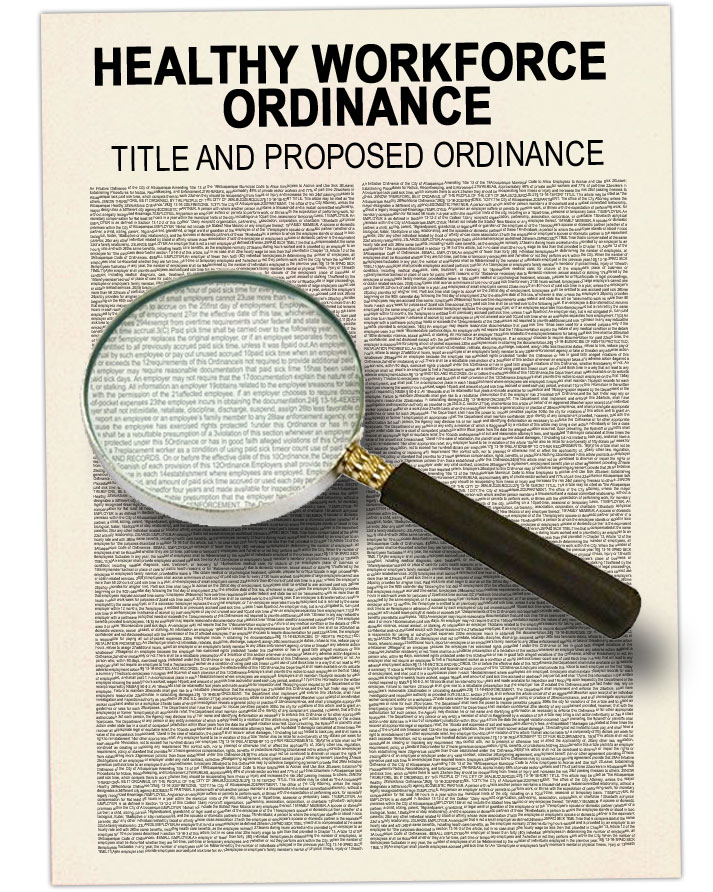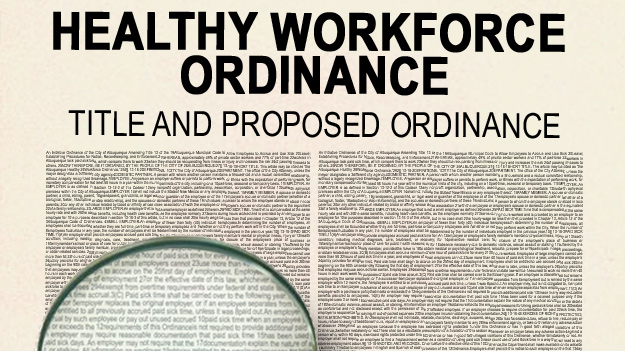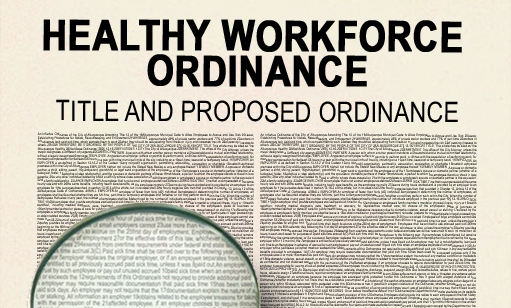Democracy keeps rolling. Even during the long days of midsummer—amidst record heat waves and the threats from Trump’s nationalist agenda to our local agendas—democracy keeps flowing. Never in recent decades have local city officials had to anticipate the effects of repealed health insurance benefits, sudden deportations of resident immigrants and the reversals of decades of DOJ protections for individual rights, among other initiatives being taken up by the federal government.An important municipal election is coming up on Oct. 3 with the mayor’s office and five council seats up for the taking. The City of Albuquerque will need to incorporate local responses to changes in federal priorities within the city budget and in the platforms of candidates running for office in the Duke City.Additionally, there is also a controversial ballot question—regarding worker sick leave—to be decided. That issue and its outcome will impact everyone working in Burque. It is important to get educated, take note of these events and, consequently, to vote.Ballot BattlesWith the power of his pen, Mayor Richard Berry vetoed an election resolution over ballot wording. Berry says the problem is that the summary for the Albuquerque Healthy Workforce Ordinance ballot question is incomplete and misleading.The Healthy Workforce Ordinance is a citizen-driven ballot question that would, if voters approve, require businesses with a physical presence in the city to provide paid sick leave for all employees—including part-time and temporary workers. The wording Mayor Berry objects to is the same summary that was used to gather the signatures needed to place the question on the ballot.In April, a lawsuit was filed against the city by a handful of local business organizations opposing the measure from appearing on the Oct. 3 ballot. They called it “logrolling,” a form of voter fraud, because it lumps different issues into one measure.Then, a district judge said the measure could go before the voters but the entire seven-page ordinance must appear on the ballot. This means the city clerk would probably have to print this question in a smaller font, making it hard to read.In a compromise, the election resolution that was vetoed by the mayor said the Healthy Workforce summary shall be printed in regular size font even if the full text is in a smaller font. In addition, there would be a copy of the ordinance in a large font inside every voting booth. The judge did retain the right to intervene if the ballot is not printed in a legible, readable font.Opponents of the measure say forcing employers to provide accrued, paid sick leave to all employees will create an undue hardship on small businesses. Proponents say it is only fair and will create a better quality of life and better working environment for all, and that it is unfair to workers when businesses reduce their hours to less than full-time, just to avoid benefits.The mayor’s veto means the councilors must interrupt their annual July hiatus to hold a special meeting at 5pm Monday, July 10, to rework the municipal election resolution. They must approve a new election resolution to send to the mayor because, under the city charter, councilors can only override a mayor’s veto during a regular scheduled meeting, not a special meeting. The next regularly scheduled meeting is Monday, Aug. 7. Rather than wait for that to debate overriding the veto, a special meeting has been set to find a compromise.Council CombatEvery two years, roughly half of Albuquerque’s nine four-year council seats are up for re-election. On Tuesday, Oct. 3, Districts 1, 3, 5, 7 and 9 are up for a change. Municipal races are said to be non-partisan but that is often only in spirit, as recent votes, coalitions and splits among the Council tend to follow partisan lines.Candidates can be publicly or privately financed with those choosing public financing receiving about $250,000 to run their campaigns. There is no limit on the amount of money privately funded candidates can collect and spend. The City Council is the legislative body of the city and is responsible for all budgets, setting goals and objectives, adoption of all policies, plans and legislation. How Albuquerque grows or not, or attracts progressive, forward-looking businesses can be greatly impacted by the City Council and the mayor.As of July 1, there are 18 candidates yearning for the 5 Council seats up for grabs. Four of those seats have incumbents running too.• District 1 takes in parts of the mid-southwest side of the city. Incumbent Councilor Ken Sanchez will face off against three challengers: Javier R. Benavidez, Johnny F. Luevano Jr. and Sandra M. Mills. Sanchez, Benavidez and Luevano are using public financing. • District 3 is in the far southwest area of the city. Incumbent Councilor Klarissa Peña will face Christopher Sedillo. Both candidates are using private financing.• District 5 takes in parts of the northwest part of the city. Councilor Dan Lewis is not running to retain his seat because he is running for mayor. Six people are vying for this empty seat: Robert J. Aragon, Cynthia Borrego, Jose Orozco, Phillip Ramirez, Catherine Trujillo and Robert Watson. Ms. Borrego is using public financing.• District 7 is the mid-Heights area of the city. Incumbent Diane Gibson will face Timothy Carlton-McQueen and Eric L. Lucero. Ms. Gibson is using public financing.• District 9 is in the mid- to south Heights. Incumbent Don Harris faces Paul Ryan McKenney and Byron Powdrell. Mr. Harris is using public financing.Mayor’s Match SetThe executive side of the City management is also said to be “non-partisan” as far as elections are concerned, but as we all know that is a difficult row to hoe in these times. The race for the mayor’s office is set for Oct. 3 as well and features eight candidates: Ricardo Chaves, Brian Colón, Michelle Garcia Holmes, Wayne Johnson, Timothy Keller, Dan Lewis, Augustus “Gus” Pedrotty and Susan Wheeler-Deichsel. Deanna Archuleta dropped out of the race citing family commitments. Keller is the only publicly financed candidate and will receive about $380,000 in public campaign funds. Check out Weekly Alibi’s video interviews of mayor candidates and the candidate’s recent debate performances. As the summer’s heat gives way to monsoon season, keep an eye on this section for reports on local issues, election coverage and more news that affects Alibi readers.
Send your comments about the City Council to carolyn@alibi.com.Special Council MeetingMonday, July 10, 5pmCouncil Chambers in the basement of City HallView it on GOV TV 16 or at cabq.gov/govtv







